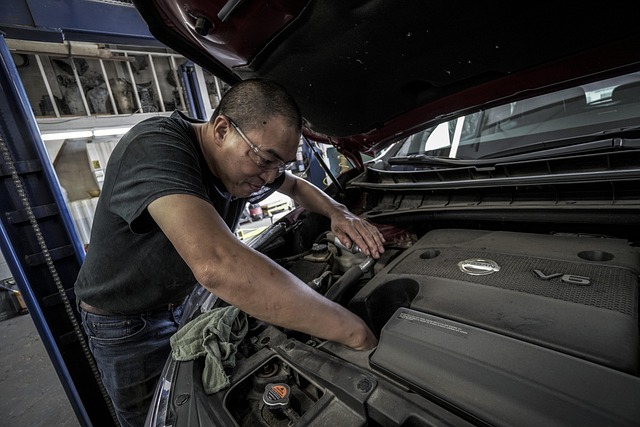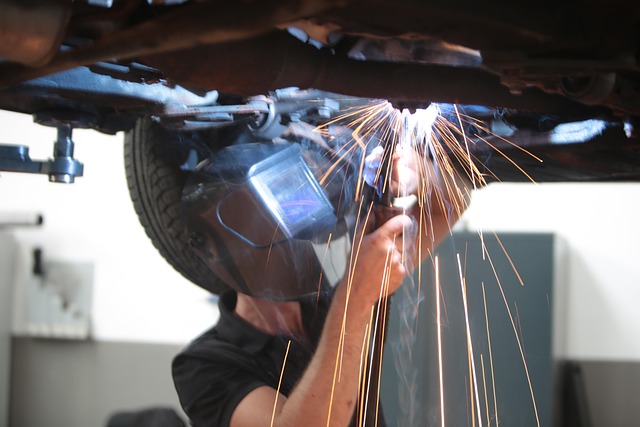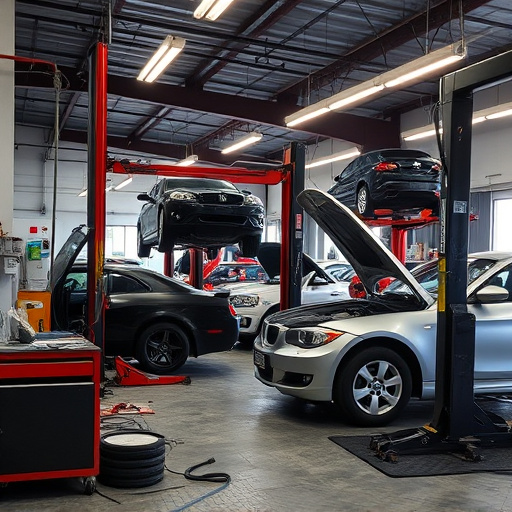A Repair Authorization Service (RAS) is an essential digital tool for automotive businesses, ensuring regulatory compliance and streamlining operations, especially for complex repairs like Mercedes Benz. It facilitates clear communication among customers, auto body shops, and insurance providers, tracking work, materials, and costs. RAS prevents legal risks and fines by providing clear documentation and protocols, covering all necessary approvals for various repair procedures. By automating tasks like estimate generation, approval tracking, and documentation management, RAS optimizes processes for auto body repairs, paint jobs, and tire services, boosting productivity while minimizing errors in record-keeping.
In today’s regulated landscape, ensuring compliance is paramount for any business. A key enabler in this regard is the Repair Authorization Service (RAS), which streamlines processes and mitigates risks associated with repairs. This article delves into how RAS serves as a gateway to compliance, highlighting the critical role of authorizations in adhering to regulatory requirements. By understanding the intricacies of repair authorization services, businesses can navigate complex regulations with ease, fostering a culture of transparency and accountability.
- Understanding Repair Authorization Services: A Gateway to Compliance
- The Role of Authorizations in Ensuring Regulatory Adherence
- Streamlining Processes: How RAS Facilitates Compliant Practices
Understanding Repair Authorization Services: A Gateway to Compliance

A repair authorization service acts as a crucial gateway to ensuring compliance with regulations for any automotive business. It’s a system that facilitates and documents the approval process for car repairs, especially in complex cases involving high-end vehicles like Mercedes Benz repairs. By implementing such a service, collision centers streamline their operations, ensuring every repair meets industry standards and legal requirements.
This digital solution allows for clear communication and coordination between customers, auto body shops, and insurance providers. For instance, when a client brings their vehicle to a collision center for repairs, the authorization service enables efficient tracking of the work, materials used, and costs involved. This not only enhances transparency but also ensures that car repair services adhere to the latest regulations, avoiding potential legal pitfalls and fines.
The Role of Authorizations in Ensuring Regulatory Adherence

In the world of auto body repairs, whether it’s a simple paintless dent repair or a more complex auto body restoration, ensuring compliance with regulations is paramount. This is where a robust repair authorization service plays a pivotal role. Authorizations serve as a legal framework, confirming that the repair process adheres to set standards and guidelines. They act as a check and balance, ensuring that vehicle body shops conduct repairs safely and efficiently while meeting all necessary legal requirements.
Without proper authorizations, a vehicle body shop could face severe consequences, including fines and legal repercussions. A repair authorization service streamlines this process by providing clear documentation and protocols for various types of auto body repairs. This includes managing permissions for specific techniques, materials, and labor standards, ensuring that every step aligns with industry regulations. Consequently, shops can operate with greater confidence, knowing they have the necessary approvals in place for their paintless dent repair, auto body replacement, and other critical procedures.
Streamlining Processes: How RAS Facilitates Compliant Practices

In today’s digital era, a repair authorization service (RAS) acts as a cornerstone for businesses in the automotive industry, enabling them to streamline processes and maintain compliance with regulations. This technology-driven approach simplifies the process of obtaining authorizations for various services, including auto body repair, car paint services, and tire services. By implementing a RAS, businesses can automate tasks such as generating estimates, tracking approvals, and managing documentation, reducing manual effort and potential errors.
The result is a more efficient workflow that not only saves time but also ensures accuracy in record-keeping. This streamlined approach allows employees to focus on delivering quality services while minimizing the risk of non-compliance. In terms of benefits, a RAS provides a clear audit trail, facilitating easier verification of authorized work and enhancing transparency throughout the entire process.
A repair authorization service (RAS) acts as a vital tool, streamlining processes and ensuring businesses adhere to regulations. By implementing a structured authorization system, organizations can navigate complex compliance requirements with ease. This article has highlighted how RAS facilitates regulatory adherence, demonstrating its importance in today’s business landscape. Embracing this service is a strategic move towards maintaining integrity and avoiding legal pitfalls.














